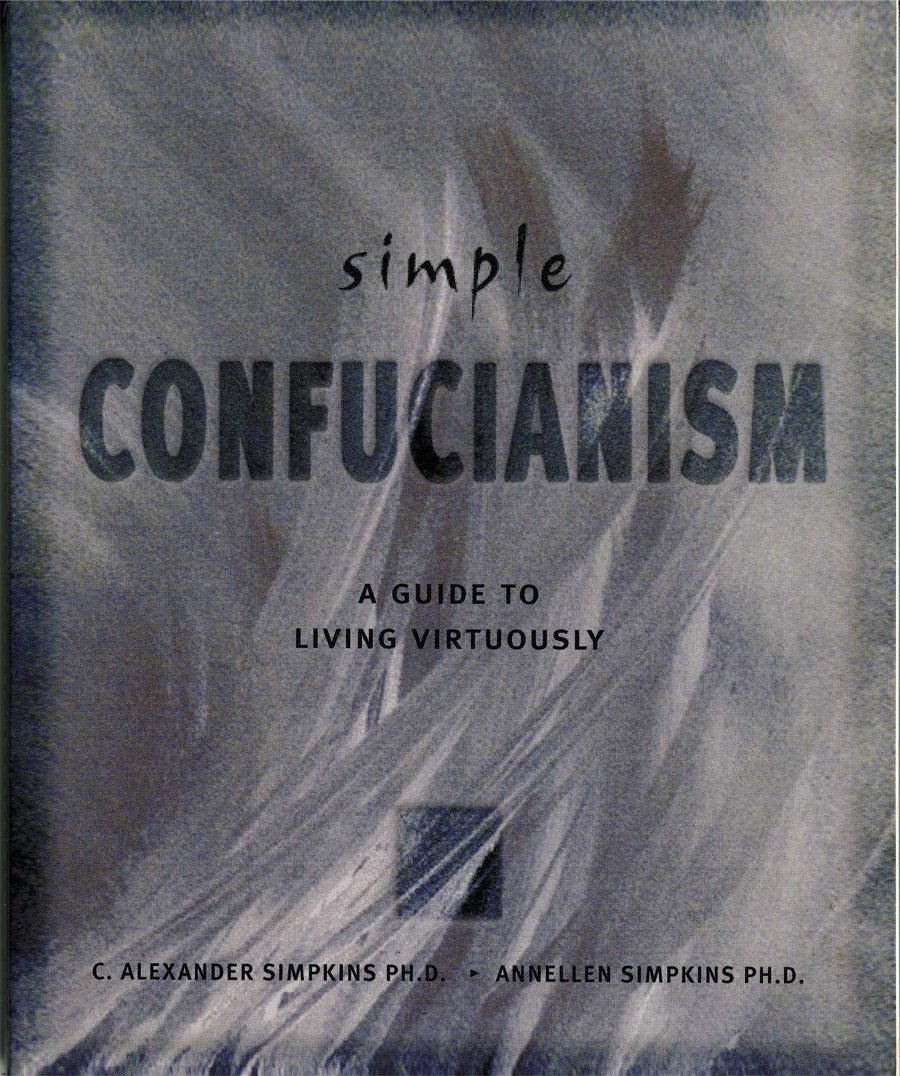![]()
|
|
|
|||||
|
|
|
|
140 pages
Pub: 2000, Tuttle Publishing
Confucian philosophy has had a profound effect on Asian society and politics for many centuries, but its effects have also been felt around the world. Confucianism addresses how people should live with each other at their best, and points to an inner source for conduct. Develop a strong and noble character to become your best through fully and sincerely engaging in living with values. Simple Confucianism opens the doorway to using the ancient wisdom of Confucius and his followers in everyday life. Part I gives the background and development of Confucianism, highlighting pivotal people. Part II explains key themes expressed as concepts, virtues, and lifestyles. Part III shows ways to bring the wisdom, happiness, and harmony of this philosophy into everyday life.
*Meditation
*Jen: Begin with Benevolence
*Find Central Harmony in Principle
*Live by the Mean
*Become a Good and Noble Person
*Leadership
*Music and the Arts
*From Cultivation to Actualization
And much more!
Book Review By Frederic and Mary Ann Brussat: "I cannot claim to have discovered wisdom and virtue. What I can say is that I never waver on the path I pursue and am tireless in my efforts to teach others — this and nothing more." These are the words of the great Chinese sage Confucius. During his lifetime, he taught over 3,000 students. Many of them became philosophers and added fresh twists and turns to his thought. Drs. C. Alexander and Annellen Simpkins succinctly chart and elucidate the multi-layered wisdom of this Chinese teacher. Confucius is mainly remembered for his celebration of the virtues of humanness, filial piety, loyalty, duty, sincerity, righteousness, and prosperity. According to the authors, the fountainhead of virtues is "jen" or altruism. This is cultivated in our relationships with family, friends, and work associates. "Shu" or reciprocity expresses the Confucian version of the Golden Rule. Virtue is not an ivory tower abstraction but a way of behaving in relation to others. It is spelled out in duties, familial obligations, and civic responsibilities. The full flowering of a human being in the Confucian ideal includes a love of music, the fine arts, poetry, and architecture. It also reaches into the political arena where leaders are challenged to practice benevolence. At one point, Ralph Waldo Emerson called Confucius "the George Washington of the world of thought." In our times when incivility seems to be the norm we desperately need his emphasis upon the development of virtues.

 (quick links)
(quick links) 